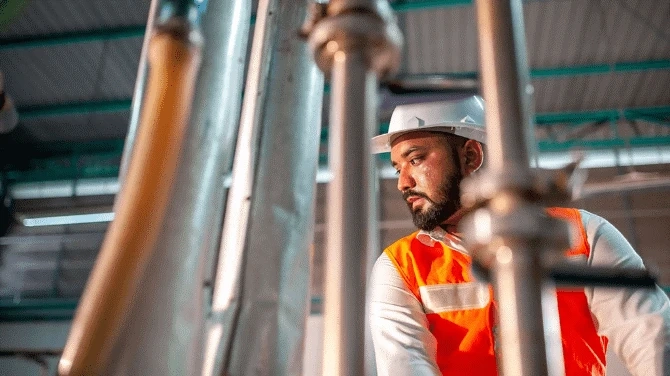Have you ever wondered what’s really going on beneath your yard? The pipes that carry water to and from your home often go unnoticed. Until a leak or break suddenly becomes a major headache.
When it comes to underground water pipe installation, the material you choose plays a huge role in how reliable your system will be. Copper, PVC, and PEX are the most common options, but each has its own strengths and weaknesses.
Copper: Tough but Not Without Flaws
Copper has been a go-to choice for decades. It is strong, durable, and does not easily allow bacteria to grow. Many older homes still run on copper because it can last for years. But there is a catch. Copper is expensive, and in certain soils, it can corrode faster than expected. Acidic or shifting ground can eat away at copper, leading to tiny leaks that often stay hidden until water bills start climbing.
PVC: Budget-Friendly but Temperature Sensitive
PVC is light, affordable, and easy to install. It does not rust or corrode, which makes it appealing for large underground projects. The lower cost makes it an attractive option for homeowners looking to save money upfront. However, PVC can become brittle in very cold conditions and may crack if the soil shifts too much. It also struggles with hot water lines, as high heat can cause it to soften or warp over time.
PEX: Flexible and Easy to Work With
PEX is becoming more popular for underground systems, and for good reason. Its flexibility allows it to bend and handle minor soil movements without cracking. It resists corrosion and scale buildup, helping water flow stay steady for years. PEX is also easier to install, which can mean fewer disruptions and less digging around your property. The main thing to watch for is sunlight exposure before burial, as UV rays can damage it if left out too long.
The Problems Most Homeowners Face
The trouble with underground pipes is that you usually don’t know something is wrong until the signs become obvious. This includes wet patches in the yard, unusual sounds, or a sudden jump in your water bill. By then, the repair may already be costly. In such cases, water leak experts are often needed to locate the issue quickly and fix it before it causes more damage.
Cost vs. Long-Term Value
Choosing the cheapest option may feel good at first, but it can cost more in the long run. Copper has a long life but can become a problem in the wrong soil. PVC is easy on the wallet but may not hold up under harsh conditions. PEX tends to strike a balance with lower installation effort and resistance to common underground stresses.
What Should You Choose?
Think about your local climate, soil type, and how long you plan to stay in your home. For stable ground and long-term durability, copper still has its place. For cooler climates with minimal soil movement, PVC can be an affordable solution. If you want a flexible, low-maintenance option that handles most challenges well, PEX is often the smarter choice.
Before You Go
The pipes buried beneath your yard do more than carry water. They protect your home from potential headaches. Choosing the right material during underground water pipe installation can mean fewer leaks, steady water flow, and less stress in the future.
Copper, PVC, and PEX each bring something different to the table. The key is matching the material to your home’s needs, so you are not left digging up your yard again a few years down the road.



